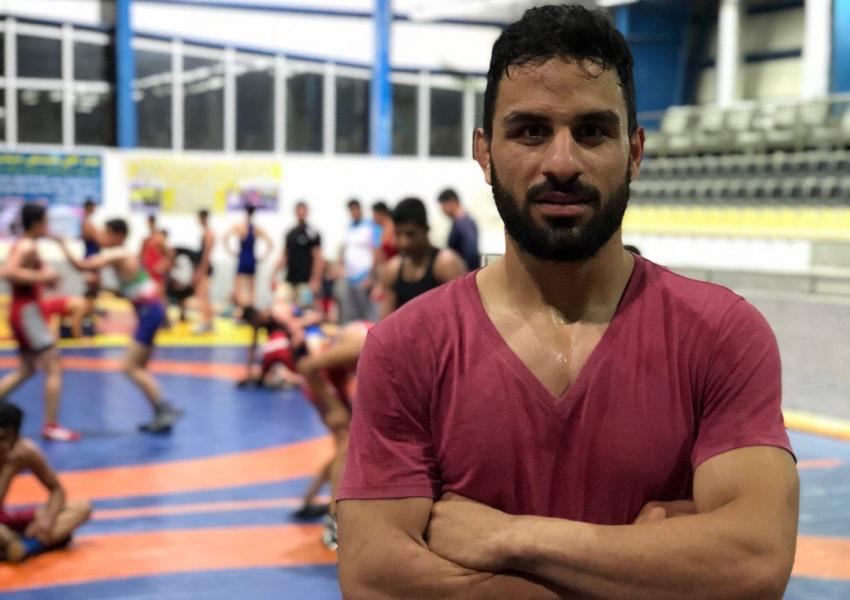
Execution Of Young Wrestler Shows Iran's Defiance Of Public Opinion, Analysts Say
Despite international pleas and outcry at home to drop the death sentence of political prisoner and athlete Navid Afkari, the Iranian Judiciary carried out the shocking execution without a prior announcement on Saturday. Analysts believe the rushed execution shows the defiance of regime hardliners' who want to prove they will not cave in to international and domestic pressure.
"The execution of Navid Afkari demonstrates that those in the hard core of the regime follow their own schemes with no respect for public opinion…They wanted to put an end to this case – which caught great attention both at the international level and at home – not through a fair and transparent reinvestigation of the alleged crime but by taking a human being's life," Morteza Kazemian, political analyst and Iran International staff member commented. "The message is 'We don't care to objections'," he added.
The 27-year-old wrestler was originally arrested alongside his two brothers in August 2018 during anti-government protests and was charged by the Revolutionary Court of Shiraz with "taking up arms against the regime.” He was later charged with stabbing and killing Hassan Torkaman, a state security guard, during the same demonstrations. Afkari confessed to the killing while in detention but later in court retracted his confession which he said had been extracted under enormous physical and psychological pressure.
The sentence that was carried out – with complete disregard of public opinion, in secret and without even allowing Afkari to have a last meeting with his family -- pertains to the murder charge which Iranian law treats as a "personal" matter between the accused and the family of the victim. In such cases the death penalty is called qisas (retribution in kind based on Islamic law) and the life of the accused lies in the hands of the family of the victim. They can forgive or forsake their right to retribution. They can even demand money to forsake "their right to qisas".
The Iranian Judiciary claims that Afkari was hanged due to the "insistence of the victim's family" but it appears the authorities were in too much haste to carry out the sentence to put an end to the case and all international reactions and pleas. They could have shown more restraint, but they did not even allow Afkari to have a last meeting with his family, a right endorsed by Iranian laws. "They are looking for a neck for their noose," the young wrestler had said about his own imminent execution.
Interestingly, the authorities claim that Afkari had had "personal reasons" for killing the victim but have dubbed him as "a martyr" which highlights his role in the suppression of the protests during which he was killed.
Human rights activists have reported that the family of the victim had agreed to meet with a group of philanthropists who sought to convince them to exercise their "right to forgive" on the same day that Afkari was hanged in prison. The family, according to reports, were absent from the execution, which goes against tradition.
"Normally, courts postpone the execution of a "qisas death sentence" as much as they can to allow for a compromise to be reached with the victim's family," Babak Farrahi, Tehran-based lawyer told Iran International.
"According to Article 70 of the "Bylaw on Execution of Sentences" the victim's family must be present at the execution. The sentence will be held if for the second time they fail to show up in person or send an authorized representative to witness the execution. We don't know if this procedure has been observed in this case," he added.
From media reports on the execution in Iran it is clear that the authorities are making every effort to hush the execution as much as possible: The media, presumably warned by censors have completely ignored the news or only run the official account of the Judiciary on their crime pages. On social media, however, the execution of the young wrestler is among the top discussion topics.
Afkari's case and sentencing had been kept quiet by the family – presumably in the hope that the sentence was not final and could be reversed. The case came to public attention only after the confirmation of his death sentence for the alleged killing was made public by the family in late August. Since then Iranians opposed to death sentence in general and his death sentence in particular had campaigned on social media to save his life and #SaveOurNavid and #SaveNavidAfkari came to find a place among the top trending hashtags in Persian.








